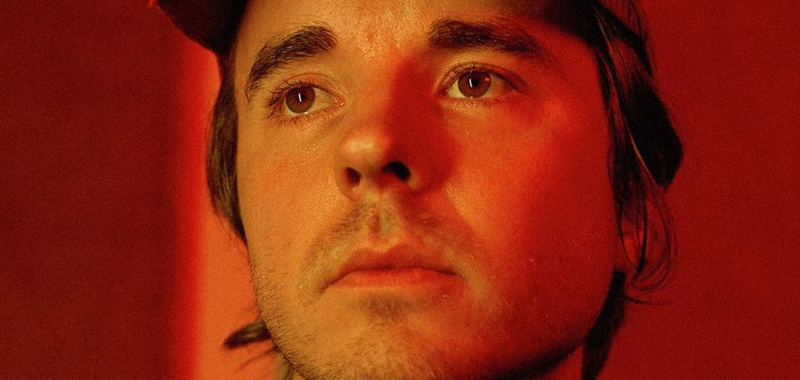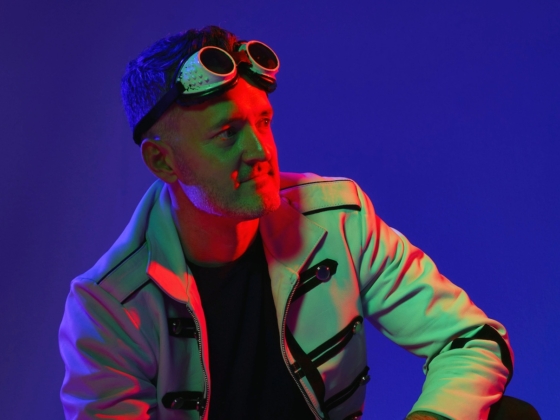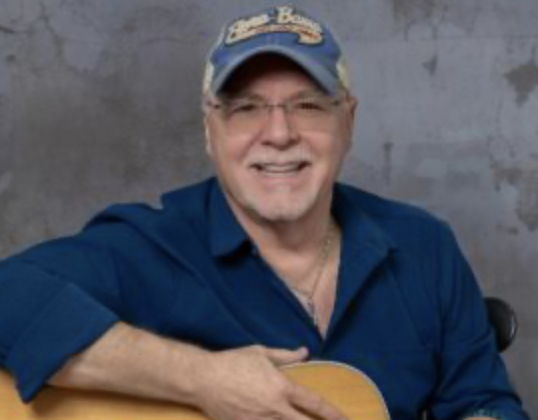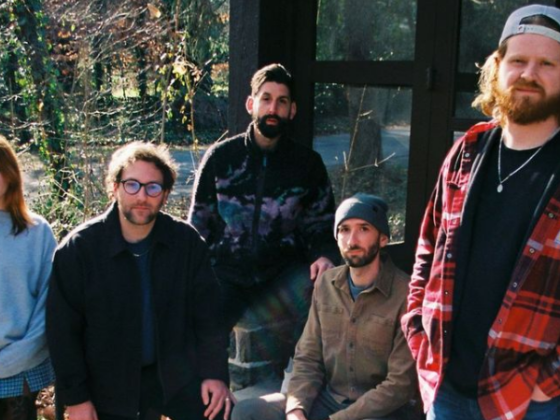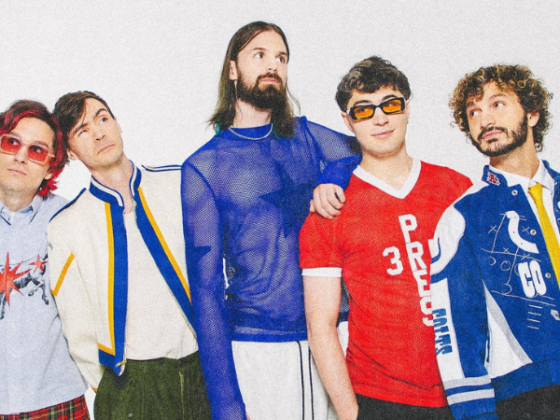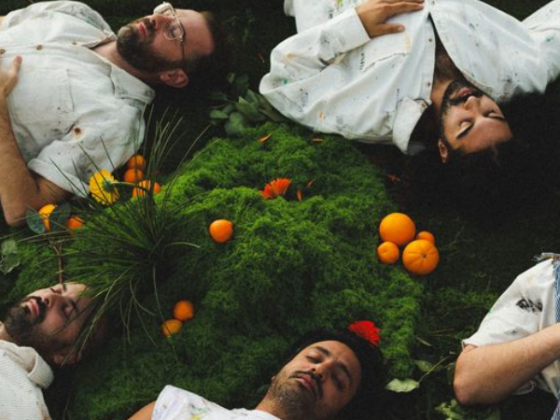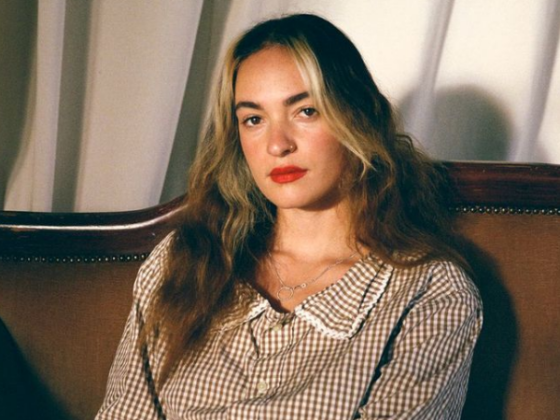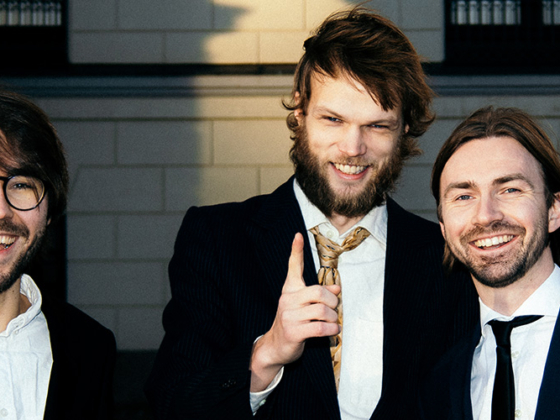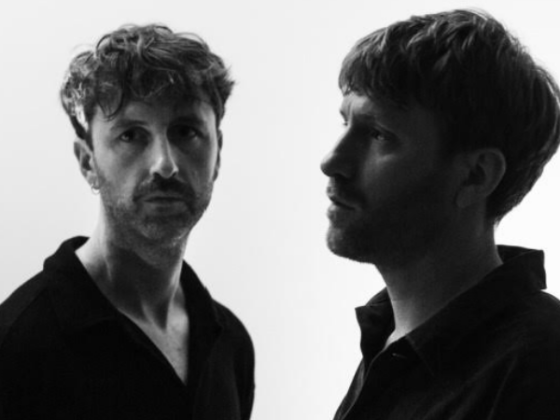Discovering a captivating story or a beautifully composed tune is always a fine day, indeed. With Toronto musician Andy Shauf, we find both. Shauf’s last album, The Party, was his first concept album and it raised quite a few glasses. It featured a collection of song-stories revolving around the same set of characters, all at the same party on one night. His most recent album, The Neon Skyline (via ANTI-) listens like a novel, each song a chapter. The musician’s second concept album follows characters like our sad narrator, his ex-girlfriend Judy and his best bud Charlie throughout the course of one evening. The album takes Shauf’s storytelling and composition style to a new level. Songs are rich with woodwinds, multi-textural melodies and unique vocal inflections that evoke a sad Paul Simon feel.
We talked with Shauf about his shift into the land of storytelling, the inspirations that led him there and a bit about his writing process. Shauf shared, too, about coming of age in Regina, Saskatchewan and how his musical stylings have shifted and continue moving in new directions. After the jazz-kissed gentle folk pop (dubbed “alternative”) Neon Skyline, what’s next? “Disco, maybe,” he jokes. Who knows?
EARMILK: Everyone’s always talking about the storytelling in your songs. Do you have a background in literature, or take certain literary influence in your story writing style?
ANDY SHAUF: No, not really. The only time I really started writing was when I started writing songs, and there was a long period of time when I was writing really like, introspective kind of things; songs about my feelings. And I got kind of tired of that.
EM: What led to the shift? Any particular influences you heard?
AS: I was listening to a lot of Randy Newman. I think I read an interview about Randy Newman, about how he uses an inconsistent narrator and he always tells stories and stuff in his songs. And I was like, oh man, that’s a way better idea than writing always about the really boring things going on in my life. So, I started trying to do story songs. It’s a good challenge. I really enjoy trying to write fictional things.
EM: Did you think of the story as a whole first, before writing the music and the songs, or how did you put this collection together?
AS: For this album, I really wanted to have a plan going into it…an outline and characters and to know exactly what they were going to do. But I don’t know how people do that. I don’t know how people are that organized, so I just started writing songs and the characters came out of it. That’s usually how it goes for me. I can start writing a song without knowing what’s going to happen in it and by the end of it, there’ll be some sort of story.
EM: So, is Neon Skyline supposed to all take place within one evening? Are there any nonlinear parts in the narrative?
AS: Yeah, it’s supposed to be one night. There’s a little dream sequencey kinda part where he’s remembering back in time but yeah. That’s one thing that for some reason I really wanted to make it happen all in one night. There was a point where I was talking to my roommate–I was telling him about the songs kind of as I went along–and I was like, this song doesn’t work because it doesn’t happen on the same night. And my roommate was like, you’re the only person that cares that this is all in one night! So, I’m not sure why I wanted it to be all in one night but that’s just how my brain was working.
EM: How autobiographical is this album? Are these songs based on your experiences, or on experiences you’ve noticed?
AS: The character’s really not too far off of me, I think. There’s a lot of this that’s like, these things have happened in my life before. Like, the song “Dust Kids” is based on when I read this book about young kids remembering their past lives and then I proceeded to drunkenly tell everyone about it at the bar. So, I made that into a song. That one’s pretty real life-based. They’re all snippets from real life and exaggerated moments.
EM: I was intrigued by your Christian pop-punk past. How old were you when you were in Captain?
AS: That was during high school and a year or two after. I was young; I really liked playing the drums really loud and breaking drums and symbols for some reason. I kinda grew out of that part, though. I grew up in the church and…when I was really young, like six or seven, I started playing drums with the church band.
EM: What do you think your parents or former church family think of your new album? Have you gotten any worried feedback or anything?
AS: Well, I’m pretty disconnected from the church these days, but my parents are proud of me. I think they like this new album because it’s a little more upbeat. I know my grandma has always wanted me to write some happier songs so. Hopefully this one is happy enough (laughs).
EM: Rob Schnapf mixed this album–were there any surprises in the studio? Creation anecdotes, either with Rob or in the music writing process in general?
AS: Yeah, when Rob was mixing it I was mostly sitting on the couch playing video games on my phone. (laughs). So yeah, he just kind of made it sound good and asked me if I liked it. But as far as surprises? I was touring a lot while I was trying to finish this last record and so the last time I got to go home and really finish everything up before we sent this to Rob, I felt like something was missing tonally. My friend who also uses my studio, had an alto sax in there. And I’d never really played sax, it’s pretty similar to clarinet but I’ve never felt confident in it but I decided to put that on a couple of songs and it actually sounded okay! Made the record, and I was surprised.
EM: Nice surprise! Which songs have alto?
AS: “Neon Skyline” and “Things I Do.” It kind of just sounds like a clarinet but I know it’s a sax.
EM: Did you do high school band or are you a self-taught musician?
AS: No, I didn’t do high school band. My mom bought me a clarinet probably about ten years ago now. Right before the album before The Party she bought me one and I kind of figured out how to play it. Having one more thing to make a textural difference on songs was nice. So yeah, I stuck with that.
EM: So clarinet was your first woodwind instrument?
AS: Yeah. I think it’s the easiest one. But I don’t want to say that to real clarinet players.
EM: Have you ever picked up a flute?
AS: I have one now. And it’s hard! I think it’s hardest one. Having to adjust your whole posture. I really want to learn a brass instrument, maybe a trumpet or something but I think that might actually be the hardest. I tried to play a trombone before and it just sounded like someone spitting through a pipe.
EM: You know, I was curious to hear your speaking voice. It sounds like you have an accent when you sing–but you don’t really! Is that inflection just the way your ear follows the music? Is this a weird question?
AS: No, I get it. People always tell me that I have an accent when I sing. And, I mean, the way that I sing now to me is natural. But I hear the weirdness? I think it’s just a product of holding out vowels really weird when I sing. I have this teacher friend who said that she thought it was because people with quiet voices, when they try to project–the way that they’ll teach you how to do it is to hold out vowels. And I think that’s what happened. Like, shows with shitty monitors and you can’t hear what you’re doing and you end up holding out the vowels really weird. And now it’s normal and everyone asks me why I sing so weird! And, I don’t know! I’m not trying to.
EM: When you mentioned Randy Newman earlier I was like, oh maybe that’s the vocal influence. Is there anyone else you’re listening to right now or, when you were making this record were you listening to a lot of anything in particular?
AS: I was listening to a lot of seventies folk stuff. I really want to make a folk record, with just guitar and vocal and really simple. So I was listening to Joni Mitchell and Gordon Lightfoot, and I found this really cool album by this guy named named Allan Wachs. He made this one record called Mountain Roads and City Streets that’s really cool. He was never really successful, but I just found his album by clicking suggested things to listen to (online). And that one was a big one for me when I was making this record.
EM: Is he still around? Does he know about how he’s influenced you?
AS: Yeah, my manager reached out to him a couple weeks ago. And yeah, he’s still around. Still doing stuff.
EM: Did growing up in Regina, Saskatchewan influence your music writing or growth? What was it like for you growing up there?
AS: I moved there after high school, I was in really small towns before that. Then after high school I moved to the big city. It’s like 200,000 people maybe? There’s a pretty good punk scene there (in Regina). It was like, hardcore music at that point–early 2000’s hardcore…a big DIY scene that was really about community. It was really welcoming. I played a lot of shows–I’d be the acoustic guy opening u for all the metal bands. Everyone was really supportive, though, it was a good place–a good scene–to grow up.
EM: Are you working on something else yet or are you beat?
AS: Yeah, I’m working on some songs. It’ll probably change a million times before I get around to the final version of whatever that’s going to be. I’m always working on something, though.
EM: Curious if you’re interested in exploring folk more, or if you might head in a new direction?
AS: I don’t want to make the same record again, so I’ve been kind of exploring the disco world. So we’ll see if that’s the worst idea that I’ve ever had.
EM: Or, the best. Get your trombone, bust into the disco.
AS: Yeah, exactly. The new instrumental-only disco trombone record.
EM: What kind of different choices do you have to make for life performances?
AS: Well, I kind of tell the players to keep to what’s on the record but obviously they’re going to interpret things a little bit differently and there’s a different feel that comes with different players. Once we all get to play the songs together it’s nice–it gives the songs a new dimension, which is an exciting part of it. On a recording I can play whatever I want and put whatever I want into it, but when you bring it to the stage and there’s six of us playing it, it’s like, you have to figure out how we trade off on different parts. Who plays what. It’s a whole, exciting process. That we haven’t started yet (he says with what sounds like a smile).
EM: Andy, how would you describe yourself outside of your music? Some of these stories paint you in a certain way. Just curious if you’re a kind of joke around, dry humor type of person or a quiet type–who are you in nature?
AS: You know, I feel like I get painted a lot as like, sad guy. But, I am not sad. Mostly, I hang out with my friends and make stupid jokes and that’s about it. Don’t get too serious.
Connect with Andy Shauf: Website | Instagram | Twitter | Facebook | Bandcamp

